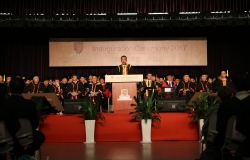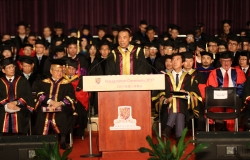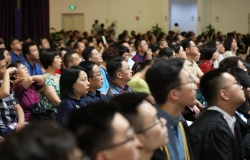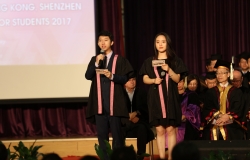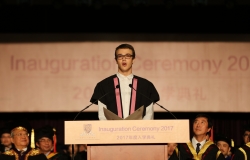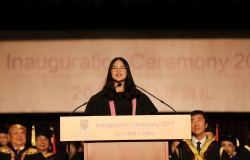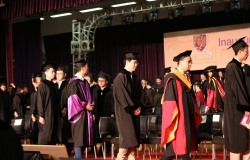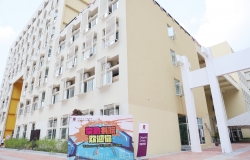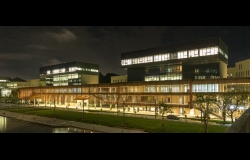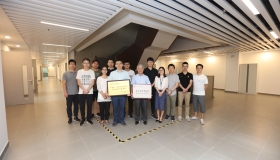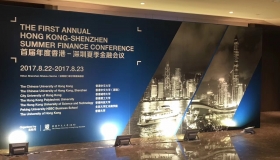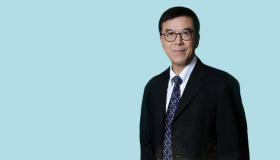The 2017 Inauguration Ceremony of the Chinese University of Hong Kong, Shenzhen
951 mainland undergraduates, over 50 international students, more than 350 postgraduates and PhDs have started their university life and academic journey at CUHK-Shenzhen. On the morning of September 3rd, the 2017 Inauguration Ceremony of the Chinese University of Hong Kong, Shenzhen was held. Prof. Yangsheng Xu, President of the Chinese University of Hong Kong, Shenzhen; Prof. Joseph Sung, Chairman of Board of the Chinese University of Hong Kong, Shenzhen and President of the Chinese University of Hong Kong; Dr. Norman Leung, Chairman of Board of the Chinese University of Hong Kong and Prof. Arieh Warshel, the 2013 Nobel Laureate in Chemistry were joined by world-renowned masters of academia, including Prof. Brian K. Kobilka, the 2012 Nobel Laureate in Chemistry; Prof. Stephen P. Boyd, Professor of Electrical Engineering at Stanford University and Members of the National Academy of Engineering.
The Inaguration Ceremony also celebrated completion of the new campus, covering over one million square metres. This has allowed a significant growth of teaching faculties.
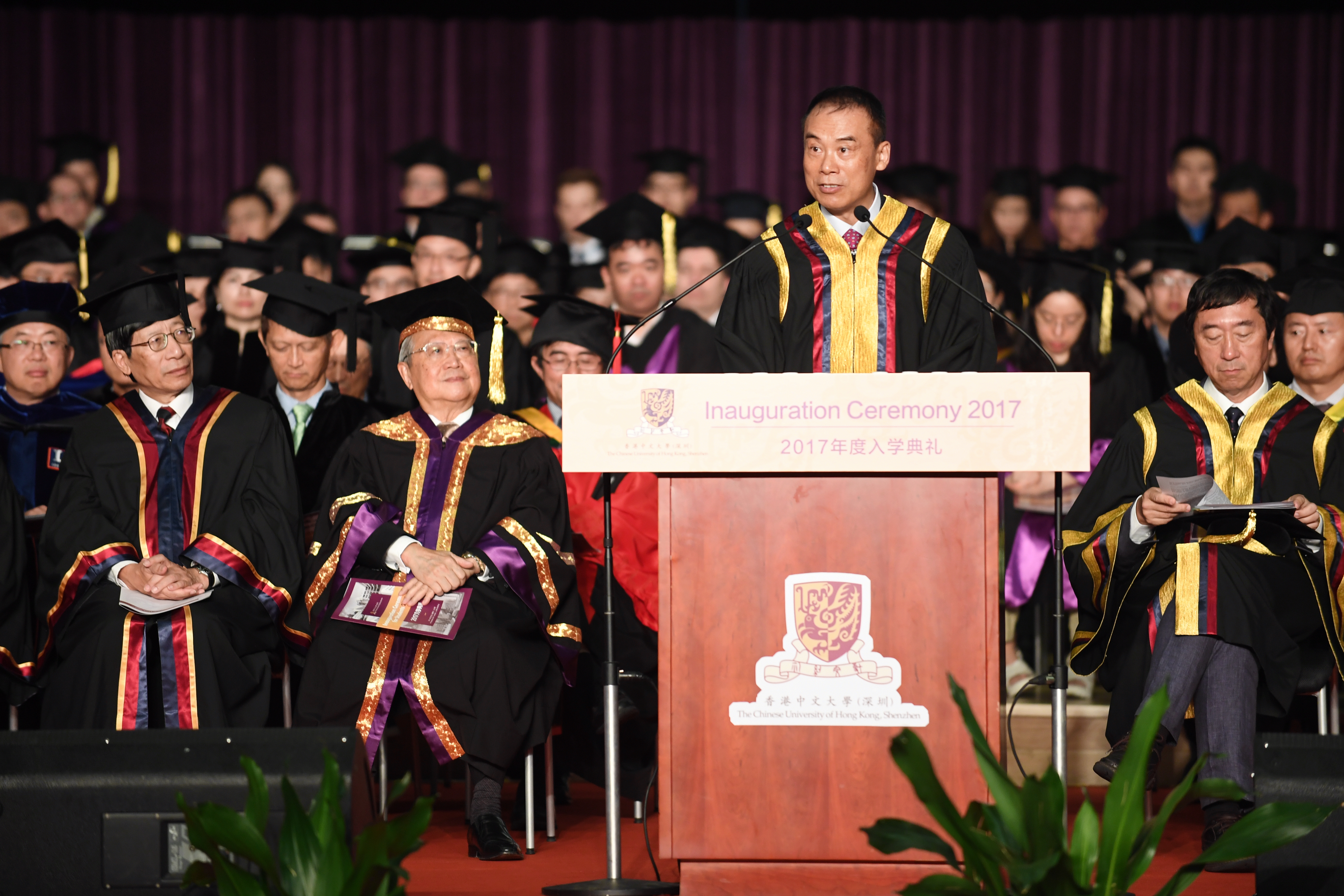
Welcoming Speech by President Xu
Welcoming Speech by President Xu
President Xu offered suggestions to new students on how to maximise their four years at university. The following are some excerpts from his speech.
A university offers an important period for a person to cultivate good habits. When you miss this period, it will be more difficult for you to do so later. A university is not only a place to acquire knowledge, but more importantly, a place to shape the person. In more concrete terms, it is a place for you to cultivate good habits, which will form the norms of your behavior for the rest of your life. I therefore would like you not to take the acquisition of knowledge as your primary goal as this is no different from “returning empty-handed from a mountain of treasures”. This is because knowledge has limits — it could be forgotten, and left aside. If you only take “knowledge learning” as your goal at university, when you graduate, you would start to worry that the “knowledge” you acquired is beginning to devaluate. On the other hand, if you could learn the good habit of self-learning, then when you graduate, I believe your future will be broader, richer, and smoother.
I hope that you could cultivate the passion for life, getting to know the world and moving forward actively. Life is not always plain sailing or filled with beautiful things . How to spend your life well and become a strong person therefore depends on your firm determination, ample wisdom, positive mentality and embracing a continual passion for life. I therefore hope that you pay more attention to the cultivation of fortitude to become persons with depth, resource, and flexibility. You should foster interests and hobbies, make friends with common ambitions and purposes, travel to learn about different culture and customs, learn to discover a wider world from reading, learn to appreciate art, learn to marvel at every tree and every blade of grass in nature, and learn to find interest and meaning from things that appear ordinary and insignificant. To me, this is what university life should give you, and this is also what you should continue to learn and give back to life.
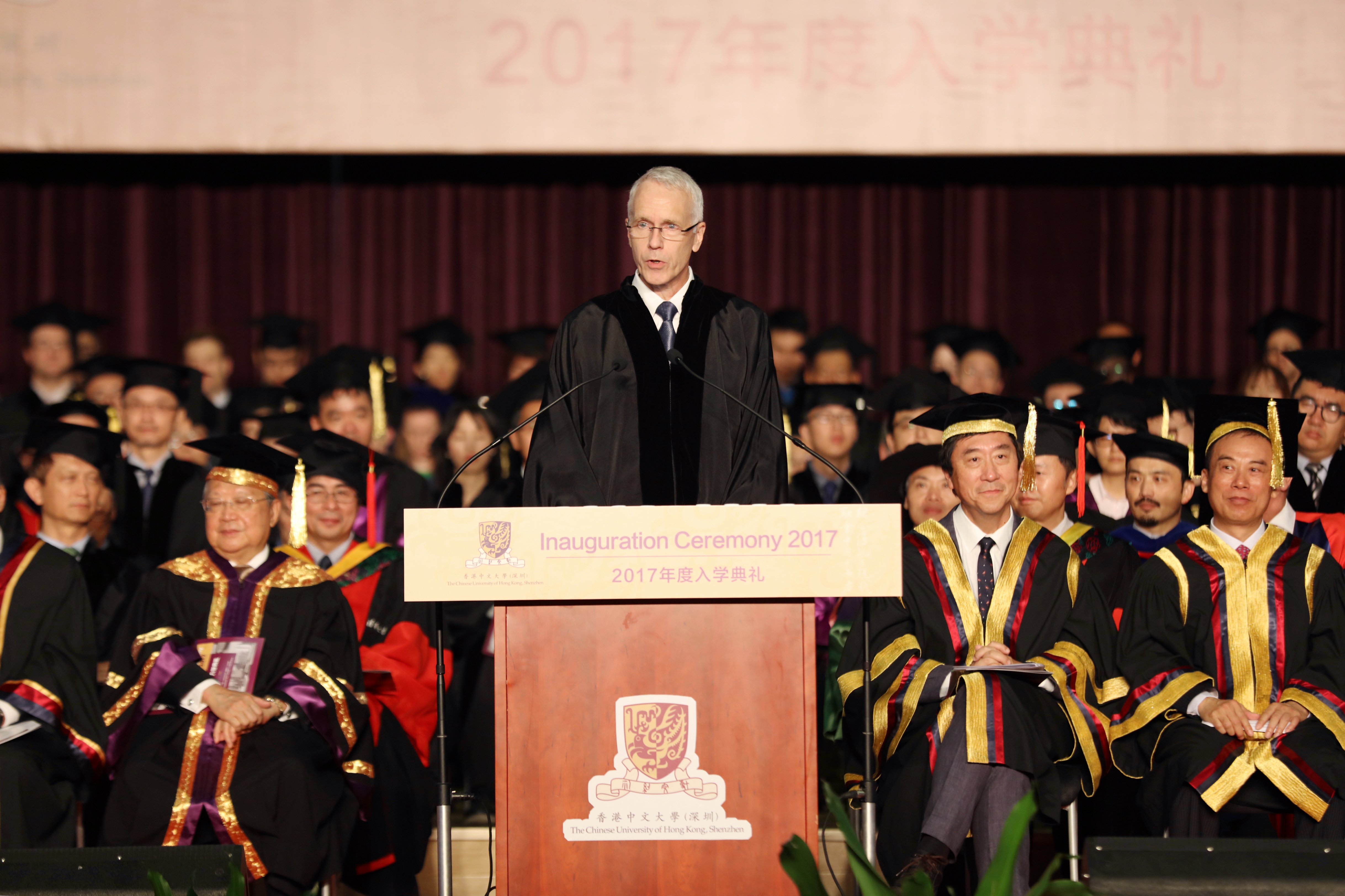
Keynote Speech by Prof. Brian K. Kobilka, Distinguished Professor, Nobel Laureate in Chemistry
Keynote Speech by Prof. Brian K. Kobilka, Distinguished Professor, Nobel Laureate in Chemistry
Prof. Kobilka encouraged new students to focus on global issues which needed to be resolved: war in the Middle-East and Africa, potential nuclear conflict, the North Korean crisis, aiding underprivileged and global climate change.
The Nobel Laureate shared his own stories: “I believe my career to date is an example of how an average individual can achieve a measure of success by a combination of factors. I believe four factors have played important roles in my career: First, I found my passion, something I loved to do, and a challenging goal that I wanted to pursue. Second, I was able to find role models and mentors who provided guidance at different stages of my career. Third, I recognized my strengths and weaknesses, and found ways to leverage my strengths and accommodate for my weaknesses. Fourth, I had balance in my life, that is, a fulfilling family life outside of my academic career.
This April, Prof. Kobilka, joined 2013 Nobel Laureate in Chemistry, Prof. Arieh Warshel, to establish institutes in CUHK-Shenzhen. By doing so, they hope to lead the young generation to solve global challenges. As Prof. Kobilka observed, “Addressing climate change will require a concerted effort from creative individuals from different disciplines including scientists, engineers, educators and politicians. I hope that some of you will consider careers that will help address these challenges.”
Prof. Joseph Sung, Chairman of Board of the Chinese University of Hong Kong, Shenzhen, President of CUHK, welcomed everyone to CUHK-Shenzhen. He thought that education, especially advanced education, had changed dramatically over the last ten years. “Today, knowledge is everywhere. The world does not lack in data, although some information will be distorted or exaggerated. Much knowledge you learn in the university will be out of date when you graduate,” said Prof. Sung. “As educated human beings, we should learn how to filter information, analyse data, distinguish truths and perspectives and advance knowledge in order to make our world a better place.”" Faced with large quantities of information, Prof. Sung hoped students from CUHK-Shenzhen to learn how to find key points of a problem and be innovative; learn to ask questions and always be full of curiosity.
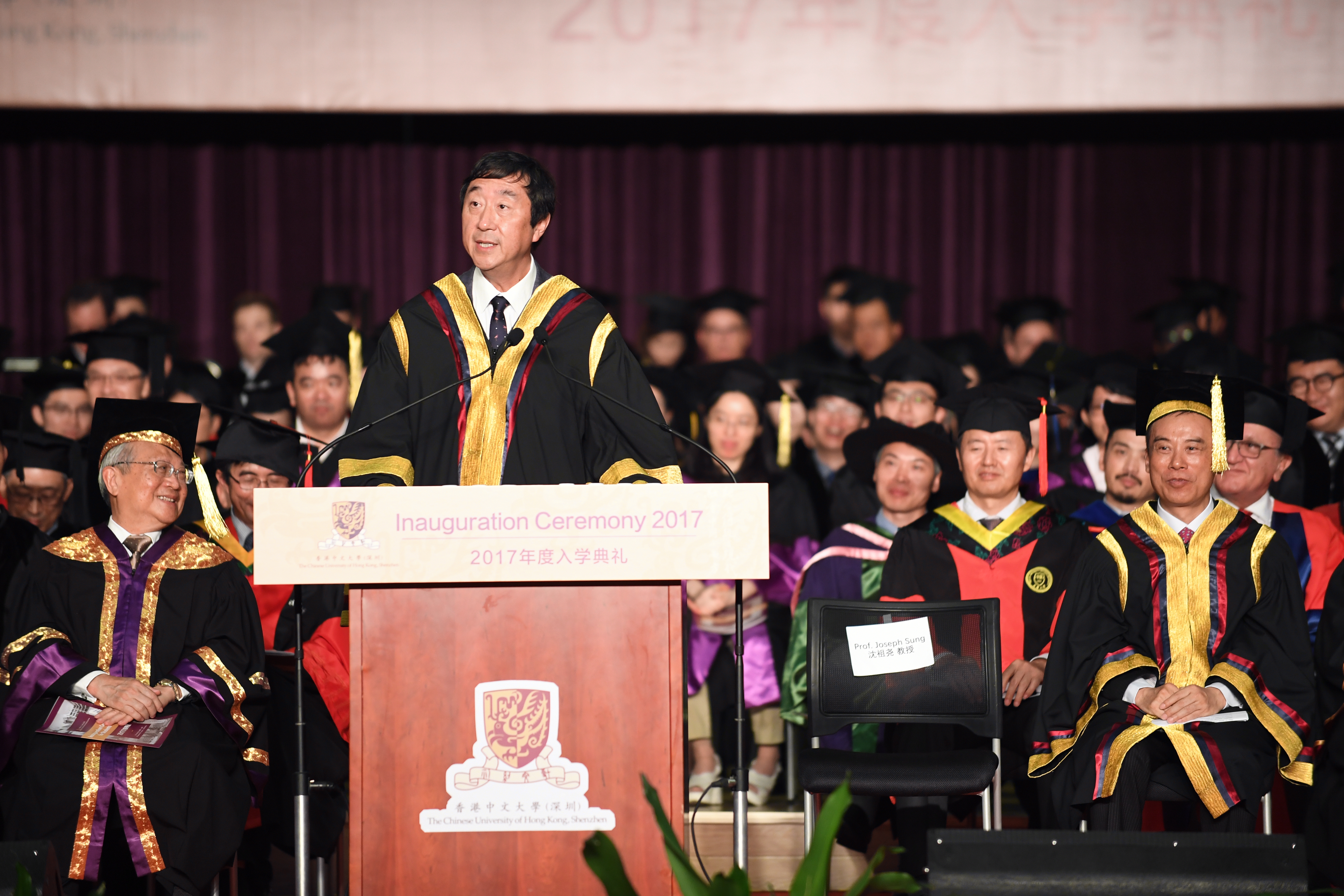
Speech by Prof. Joseph Sung, Chairman of Board of the Chinese University of Hong Kong, Shenzhen,
President of the Chinese University of Hong Kong
CUHK-Shenzhen Develops in Full Speed
In 2017, CUHK-Shenzhen admitted 951 mainland undergraduates and has topped the admission score among universities in Guangdong Province for 2 consecutive years. Of the liberal arts students admitted, the lowest score was 597 (Rank: 955), ranking top 0.3% of 310,000 students in the province. Of the science students admitted, the lowest score was 604 (Rank: 3551), ranking top 1% of 350,000 students in the province. Many excellent students put CUHK-Shenzhen as their first choice, including the 1st place science student in Guangdong Province, 2nd place science student in Fujian Province, 1st place in math in Shandong Province and 1st place in English in Yunnan Province. They hope to pursue their academic goals in a research university which combines Chinese culture and western values.
President Xu said: “At the beginning, we just had a few dozen staff. Now, we have more than four thousand teachers, students, and staff. We have established three Schools and twelve Programmes, which have been widely accepted and recognized nationally.” 3 years after it was founded, it has attracted many outstanding global scholars and researchers and established several research institutes, including the National-local joint Engineering Laboratory of Robot and Intelligent Manufacturing, the Robotics Institute of CUHK-Shenzhen, the Shenzhen Research Institute of Big Data, the Shenzhen Finance Institute, the Arieh Warshel Institute of Computational Biology, the Kobilka Institute of Innovative Drug Discovery and the Hopcroft Institute for Advanced Study in Information Sciences. With the involvement of Nobel Laureates, a Turing Award Winner, a Fields Medal Winner, Academicians of Chinese Academy of Engineering, Academicians of Chinese Academy of Sciences, Academicians of National Academy of Engineering, Academicians of National Academy of Sciences and Academicians of the Academy of Science of the Royal Society of Canada, students have received more comprehensive guidance in their professional fields.
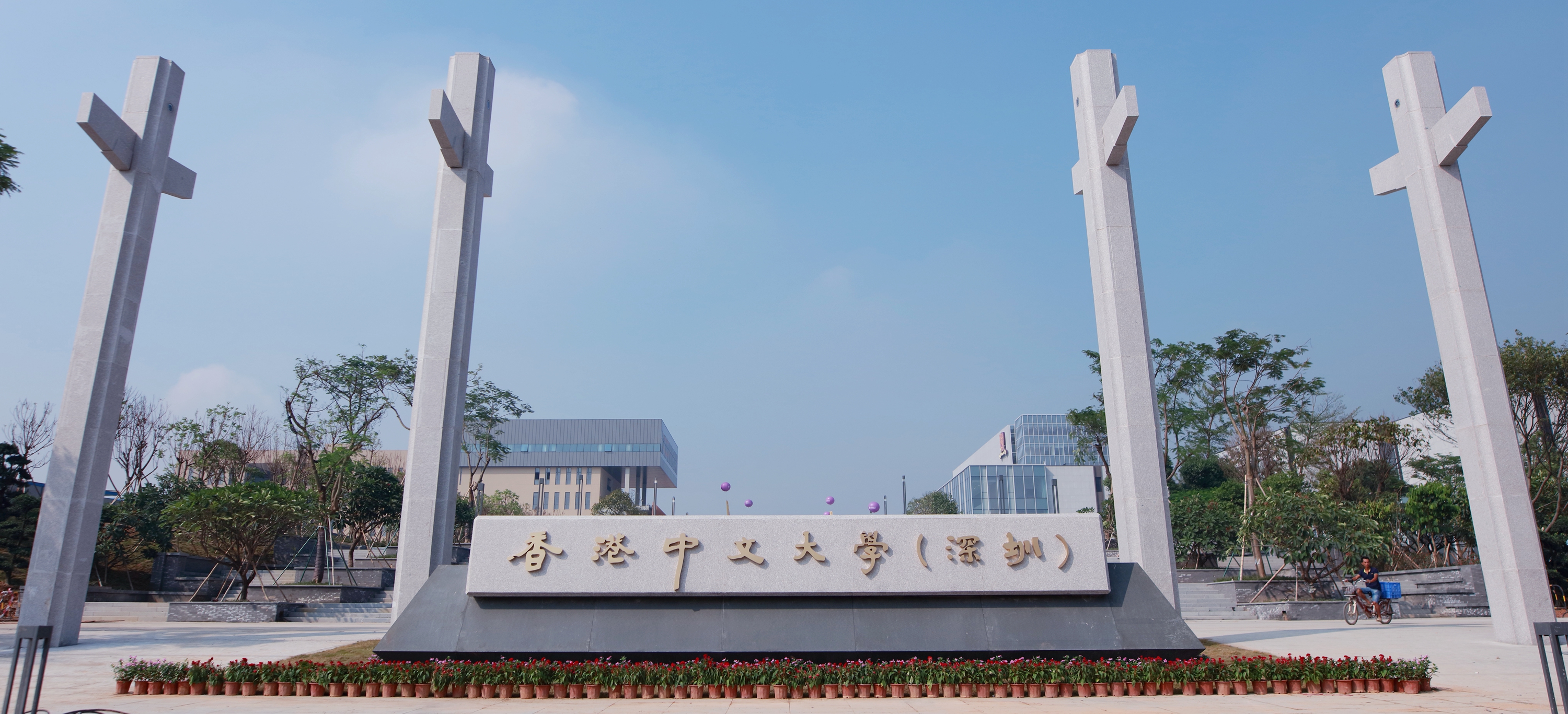
The new campus of 1 million square meters was completed to welcome new students
Phase I comprises the upper, middle and lower campus. The campus design of CUHK-Shenzhen implements the spatial concept of "mountains, woods and compounds". The campus preserves the woodland mountain ecosystem and establishes a green axis through the core of the university grounds. The buildings offer a free academic environment for staff and students and are designed to fit into nature, with such features as the semi-transparent wood barriers along Longxiang Road.
The upper campus comprises of Diligentia and Muse Colleges and supporting facilities including dorms for teaching staff and a service center. Diligentia College, comprises 3 buildings. The light yellow color was selected to match the blue Shenzhen. Residents enjoy beautiful natural views from their windows. Muse College also incorporates 3 buildings which are light grey and jade green in color. The surrounding grounds can be used for exercise and biking. This year will therefore see the official opening of the two new colleges—Diligentia and Muse. The Lower Campus includes the administrative building, library, teaching buildings, research buildings, conference hall, an indoor stadium, the student activity center and Shaw College.
In his speech, Prof. Xu reflected that the importance of college culture lay in its promotion of individual human character. At the opening of a college on the Sha Tin campus, Mr. Ch’ien Mu warned students that the major condition for a successful career was innate spirits rather than exterior chances. Such spirit was fundamental to the development of the Chinese University of Hong Kong, when predecessors worked together with enthusiastic young student —carrying forward Chinese culture for the purpose of humanistic education, facilitating cultural communication between East and West and cultivating talents. This has become an objective passed down from generation to generation.

